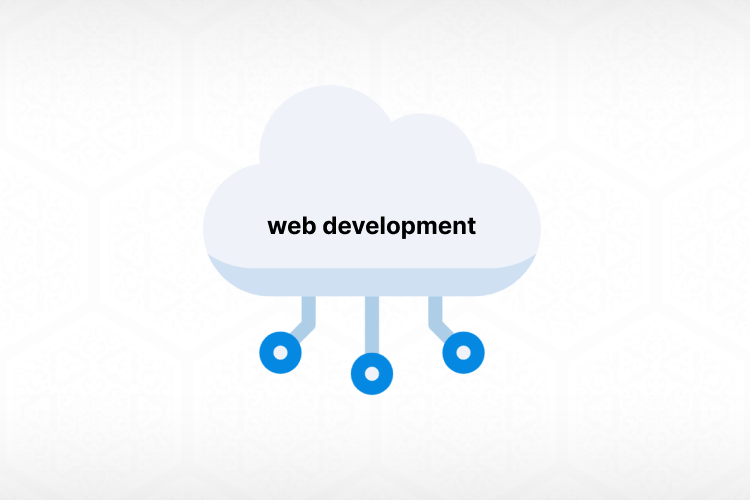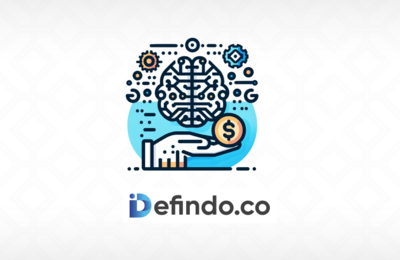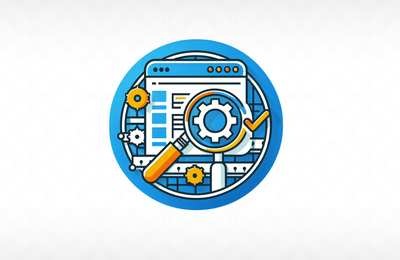
In today's digital landscape, large corporations cannot afford to neglect or underthink their approach to enterprise website development. A well-designed and robust website can create positive user experiences, improve customer satisfaction, and optimize company efficiency. On the other hand, poorly executed web development can lead to lost sales, lower conversions, and security vulnerabilities. In this article, we will explore the key elements of enterprise website development and how it can contribute to the growth and success of a large corporation.
Understanding Enterprise Web Development
Enterprise web development encompasses the creation and maintenance of corporate websites, web applications, and enterprise software. These tools are crucial for the digital success of mid to large-sized organizations. While they may incorporate different web technologies, they are often integrated and leverage similar enterprise systems, frameworks, servers, and databases.
Enterprise web development stands apart from regular web development due to its complexity and the need for additional features and tools. Enterprise websites and web applications are typically built to cater to the specific needs of large organizations. They require scalability, advanced security measures, and seamless integration with various enterprise systems. Additionally, enterprise web development focuses on delivering an engaging user experience, improving site speed and user interface, and being adaptable to future expansion.
The Corporate Website: A Powerful Marketing Tool
The corporate website serves as the online presence of a company and is a vital marketing and sales tool when executed well. Potential customers are more likely to engage with a website that loads quickly and provides a seamless browsing experience. Enterprises with large volumes of content face the challenge of ensuring fast loading times. Many organizations utilize Enterprise Content Management (ECM) systems to optimize their website's performance and speed.
An ECM system helps manage and organize the vast amount of content on a corporate website, ensuring quick and efficient retrieval of information. By leveraging ECM tools, enterprises can enhance the performance of their websites, improve user experience, and increase customer engagement.
Internal and External Web Applications: Streamlining Operations
Corporations often utilize web-based applications internally to streamline various operations and workflows. These applications can facilitate team management, project coordination, and intercommunication within the organization. Additionally, web applications can also be tools and services that customers can access from mobile apps or the corporate website.
Well-designed web applications offer a wide range of utility and functionality, creating a seamless and connected suite of tools for users. They enable efficient collaboration, data management, and process automation within the organization. By leveraging web applications, enterprises can optimize their internal operations, improve workflow efficiency, and enhance communication among teams.
Enterprise Software: Managing Daily Activities
Enterprise software plays a crucial role in managing the daily activities of a large corporation. It encompasses various applications and systems used for accounting, recordkeeping, automation, and project management. The choice of software depends on the specific needs and size of the organization.
Enterprise software can facilitate key processes, integrate multiple systems, and provide valuable insights for decision-making. By utilizing robust and efficient enterprise software, organizations can streamline their operations, improve productivity, and achieve better overall performance.
Critical Elements of Well-Executed Enterprise Web Development
Successful enterprise web development requires careful consideration of several key elements. These elements contribute to the overall effectiveness, security, and functionality of web applications and websites. Let's explore these critical elements in detail:
1. A Well-Designed Tech Stack
A tech stack refers to the combination of front-end and back-end technologies used in web application development. Front-end development involves client-side coding using HTML, CSS, JavaScript, and other frameworks. Back-end development focuses on server-side coding and utilizes languages like Python, Java, PHP, or Node.js.
Choosing the right tech stack is crucial for ensuring robustness, security, and scalability of enterprise web applications. It is important to select proven and stable technologies that align with the specific requirements of the organization.
2. Effective Web Development Framework
A web development framework provides a structured and efficient environment for building applications, services, and websites. It includes tools, libraries, and resources that developers can leverage to streamline the development process. Popular frontend frameworks for enterprise web development include Bootstrap, Angular, Vue.js, and React. For backend development, frameworks like Spring, Hibernate, and Apache Struts2 are commonly used.
Using established and reliable frameworks can significantly enhance security, enable complex functionality, and expedite the deployment process. It is essential to choose frameworks that suit the specific needs of the enterprise and provide a stable and streamlined environment for development.
3. Efficient Life Cycle Model
An enterprise web development life cycle encompasses the step-by-step process of designing, building, testing, and deploying web applications. The Agile life cycle model, which emphasizes collaboration and teamwork, is widely adopted by many corporations. This model involves iterative development, continuous testing, and frequent feedback from stakeholders.
By incorporating an efficient life cycle model, enterprises can ensure smooth project execution, effective communication among team members, and timely delivery of web applications. It is crucial to define a well-mapped development process tailored to the organization's size, needs, and available resources.
4. Stringent Security Requirements
Security is a paramount concern in enterprise web development. Web applications are often targeted by security attacks due to their complexity and the valuable data they handle. To fortify web applications, enterprises must implement stringent security measures such as vulnerability testing, passwordless authentication, and the use of web application firewalls (WAFs).
Compliance with security standards and constant monitoring for vulnerabilities are essential to protect enterprise web applications from potential threats. By prioritizing security requirements, organizations can safeguard sensitive data, mitigate risks, and ensure the trust of their customers and stakeholders.
5. Well-Designed User Interface and User Experience
User interface (UI) and user experience (UX) play a crucial role in enterprise web development. Well-designed UI and UX contribute to higher conversion rates, improved customer satisfaction, and increased user engagement. Enterprises should focus on creating responsive and adaptive web designs that provide seamless experiences across different devices.
Adaptive web design techniques, such as fluid layouts and engaging media queries, enable enterprises to deliver personalized and optimized user experiences. Collaborating with experienced UX developers is crucial to designing intuitive interfaces, streamlining navigation, and enhancing overall usability.
Crucial Characteristics of Enterprise Web Apps and Software
Successful enterprise web applications and software possess three crucial characteristics: scalability, interoperability, and performance. These characteristics are essential for sustaining growth, ensuring seamless connectivity, and maximizing profitability. Let's delve into each characteristic in more detail:
1. Scalability
Scalability is a critical characteristic of enterprise web applications and software. It enables the system to handle increasing workloads, user demands, and data volumes without compromising performance. Scalability ensures that the application can grow and adapt to evolving business needs, supporting the organization's expansion and success.
2. Interoperability
Interoperability refers to the ability of enterprise web applications to connect and interact with various devices or networks seamlessly. Enterprises require robust systems that can integrate with other software, databases, and enterprise systems. Interoperability enables efficient data exchange, streamlines processes, and enhances collaboration among different stakeholders.
3. Performance
Performance is a crucial characteristic of enterprise web applications and software. It ensures that the system operates efficiently, delivers fast response times, and minimizes downtime. Reliable performance is essential for uninterrupted business processes, user satisfaction, and achieving higher return on investment.
The Benefits of Enterprise Web Development for Growth
Enterprises that prioritize and invest in strong enterprise web development reap numerous benefits, including increased conversions, sales, and customer satisfaction. By leveraging web applications internally and externally, organizations can enhance efficiency, improve user experience, and accelerate workflow and communication processes.
Well-designed enterprise websites, apps, and services leverage efficient tech stacks, optimal life cycles, defined development processes, stringent security measures, and robust UI/UX design. These elements contribute to the success and growth of enterprises, enabling them to stay competitive in the digital landscape.
DigitalSuits, a trusted provider of enterprise web development services, specializes in integrating software platforms, improving user experience, and optimizing web applications. With their expertise and experience, they can assist enterprises in successfully executing enterprise web development projects.
In conclusion, enterprise web development plays a critical role in the growth and success of large corporations. By leveraging robust technologies, efficient frameworks, and stringent security measures, enterprises can build scalable, interoperable, and high-performing web applications. The combination of well-designed tech stacks, optimal life cycles, and rigorous UI/UX design ensures positive user experiences, improved efficiency, and increased customer satisfaction. To maximize the benefits of enterprise web development, organizations can rely on trusted partners like DigitalSuits to deliver comprehensive and effective solutions.















